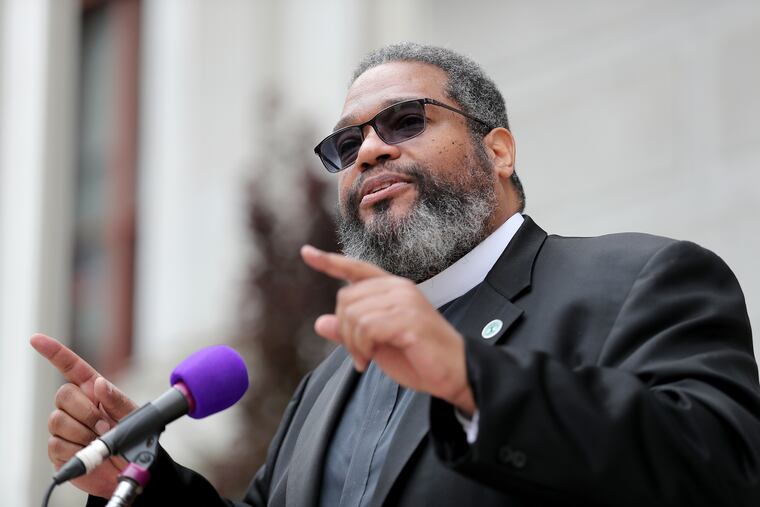‘We can do better and Peco can help us do better’: POWER’s People’s Energy Plan rally drew a small but committed crowd
Currently the state ranks 45th in renewable energy generation.

Were you born yesterday?
Researchers say if you were born after 1980 you are the part of a generation of people who have probably never experienced “normal weather.”
Were you born today?
A study shows that children born in 2020 may face up to seven times more climate disasters over their lifetime than people born in 1960.
According to climate scientists, we are currently living at the time when the impact of human-made greenhouse gases is the culprit for a wide range of social and health issues. Problems that are exacerbated in low-income and minority communities.
Calling for a sustainable future, POWER Interfaith is working to gather support for its People’s Energy Plan. Their goal is to push Peco to purchase more clean energy, such as wind or solar, to sell to its 1.6 million customers, reducing its dependency on fossil fuel.
“We can do better and Peco can help us do better,” Bishop Dwayne Royster, executive director of POWER Interfaith Philadelphia, shouted to about 100 people who gathered in front of City Hall on June 28.
The group is also targeting the Pennsylvania Public Utilities Commission (PUC), the state regulatory agency, which every four years has to approve Peco’s energy purchasing plans. Peco’s 2024 procurement plan is due for state approval next year.
“Peco and the PUC have an opportunity to step up and take leadership.”
The People’s Energy Plan requires Peco to work with stakeholders on the procurement plan and to become one of the state’s clean energy leader.
To purchase renewable energy, the company has to move from using short-term contracts, which favor gas and oil companies, to entering into long-term contacts, which renewable energy companies prefer. Peco has said it is required by the PUC to buy the least costly energy, a move that favors fossil fuel.
“Peco and the PUC have an opportunity to step up and take leadership,” Royster told the crowd. “Some utilities have stepped up,”
» READ MORE: POWER Interfaith proposes the ‘People’s Energy Plan,’ pushing Peco to use more renewable energy
Currently Pennsylvania ranks 45th in renewable energy generation or near the bottom of the states. Only 3% of the commonwealth’s total energy comes from renewable sources.
“We never should be stuck at the bottom of the list. The Pennsylvania policy is to obtain one-half of 1% [of electricity] from solar [but] Peco executives don’t have to do the bare minimum required by law,” Royster said.
“We have engaged with Power Interfaith in the past and we would be open to meeting with them again, if asked,” said a Peco spokesperson, adding that the company has already invested “millions of dollars into our electric infrastructure to enable and expand solar installations and we are working to procure more solar power from local generators.”